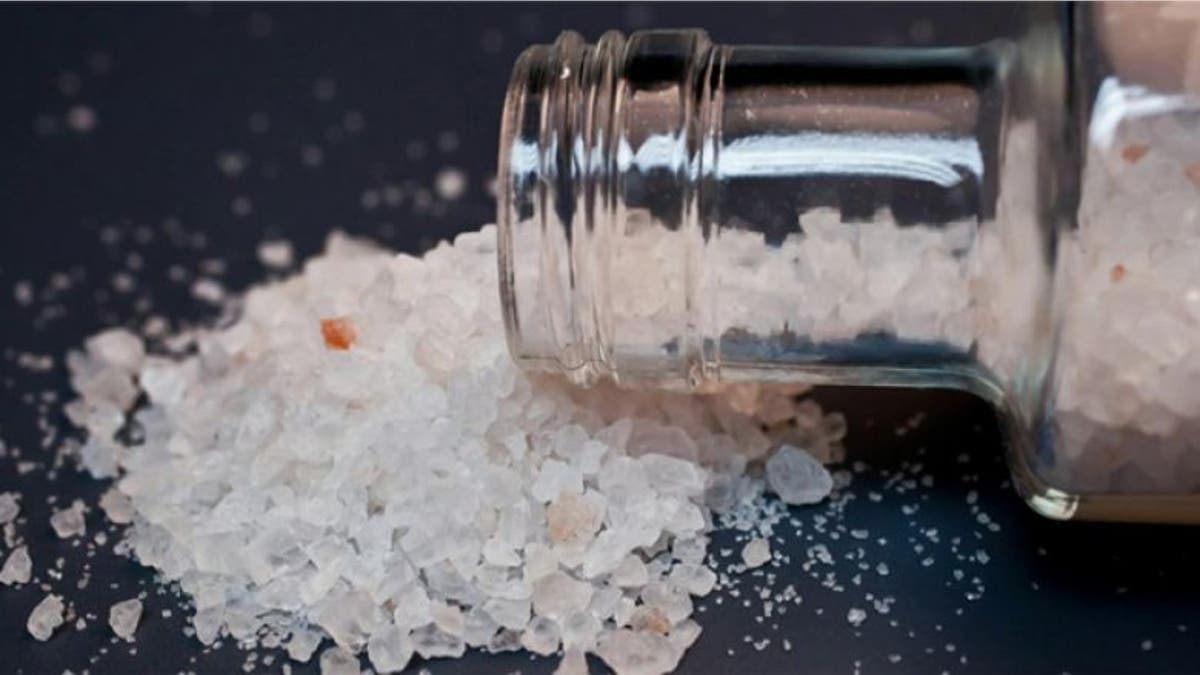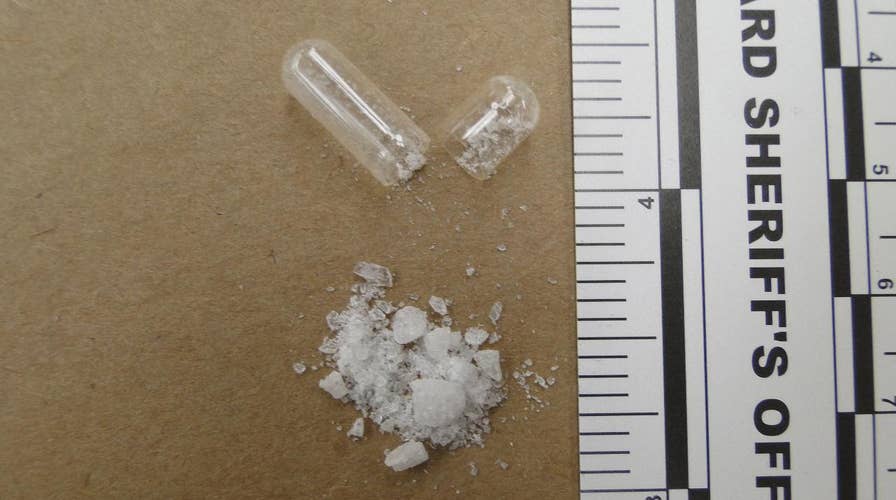‘Flakka': How dangerous is the new street drug?
A designer street drug called ‘Flakka’ is making headlines again with a new incident involving four people going on a rampage in Sullivan, Missouri. What is Flakka and just how dangerous is it?
Otherwise normal folks suddenly running naked, screaming through the streets and breaking into homes?
That kind of bizarre and sometimes dangerous behavior has taken place in recent years in the South and Midwest – with the most recent headline-grabbing case in Missouri. Police trace it all to a synthetic substance related to bath salts that is known as “flakka.”
Flakka, whose chemical name is alpha-PVP, seemed to fall off the national radar last year after China, a key source of the substance, moved to ban its production and exportation under pressure from the United States.
But police and federal drug officials say those who manufacturer such substances eventually try to game the system by changing one aspect of the chemical composition so that it no longer violates a ban.
Former Missouri narcotics investigator Jason Grellner, now the safety and security manager at Mercy Hospital, says there's been a recent uptick in emergency room visits from people who appear to be under the influence of the substance.
'They're seeing dragons'
“What we see in the emergency department at Mercy is people brought in by private ambulance or law enforcement who are having a full-blown episode,” Grellner, a past president of the Missouri Narcotics Officers Association, told Fox News. “They’re seeing double, they’re seeing dragons. They believe wholeheartedly that it’s actually occurring.”
Health and security officials in Oklahoma, Kansas and Arkansas -- other states where the Mercy hospital system operates facilities -- are also seeing flakka cases.
"The nursing and physician staffs are in danger from these patients," said Grellner, referring to the violent behavior of people who consume the substance. "There's no blood test or urine test, no way for physicians to know what the user has actually ingested. They have to treat the patient symptomatically and monitor them constantly for their mental and physical states."
"The nursing and physician staffs are in danger from these patients. ... There's ... no way for physicians to know what the user has actually ingested."
Earlier this month, four people in Sullivan, Mo., who overdosed on what police indicate was most likely flakka, took to the streets, barking and shedding their clothes, and broke into homes and businesses. Two were arrested and the others were taken to a hospital.

Flakka, whose chemical name is alpha-PVP, seemed to fall off the national radar last year after China, a key source of the substance, moved to ban its production and exportation under pressure from the United States.
Just last month, police and health officials in a West Virginia county warned that flakka was being trafficked to the area.
"A new drug has hit Harrison County that has the capacity to cause rage and murderous tendencies in those who use it," Dr. Mark Povroznik, chief quality officer at United Hospital Center, told WDTV-TV, a local CBS station.
Added Bridgeport police Chief John Walker: “There is nothing to try. It will destroy you.”
Flakka catapulted into the headlines a few years ago, when it was was prevalent in areas of South Florida, and again a year ago, when it was suspected by police in a case in which a Florida State University student who consumed it fatally stabbed a couple he happened to see outside their home, then started to eat the man’s face.
Toxicology results later showed that Austin Harrouff, the student, had no bath salts or flakka in his system, but then other accounts of people going out of control because of it attracted attention.
Turbulent effect
Bath salts were banned in the United States in 2012. Flakka usually comes as a pink or white crystal that can be injected, snorted or vaporized. The effect on the mind and body is turbulent, often sending body temperatures soaring to 105 degrees and causing paranoia and hallucinations. Some people have gone into cardiac arrest.
Drug Enforcement Administration spokesman Wade Sparks told Fox News that flakka "fell off the map for a little while."
Sparks said those who manufacture and traffic the drug try to stay a step ahead of authorities, shipping the substance in packages that are mislabeled, and that say things such as "not for human consumption."
"It's to thwart the effort of law enforcement," he said, "We can still prosecute, we can still go after it."
The sheriff of Lewis County, Ky., recalls when flakka wreaked havoc in his area about a year and a half ago, and shudders to think it could make a comeback.
'Just crazy stuff'
Sheriff Johnny Bivens recalls getting calls at home in the middle of the night from residents who swore his deputies were hiding in their trees and in the attic.
“We were getting calls about people acting irrational, just crazy stuff,” Bivens told Fox News. “We were arresting these people, but we weren’t sure what was going on. Finally someone told [us] it was flakka. That was new to us.”
The sheriff said the use of force by his deputies rose up considerably.
"These people thought everybody was trying to hurt them, to kill them," he said. "They didn't know we were trying to help them, or just arrest them."
One law enforcement agency in Tennessee reached out to him, at its wit's end with flakka arrests. It had used its entire supply of taser cartridges.
“We’re a rural area, we have a small department. It exhausts all of your resources,” Bivens said. “I’m not just talking about just your law enforcement resources. I’m talking about emergency services, child protective services.
"Most of these people have kids, you have to remove the kids from the home. I dealt with one guy who it took 30 days for his head to get clear” of the effects of flakka.










































